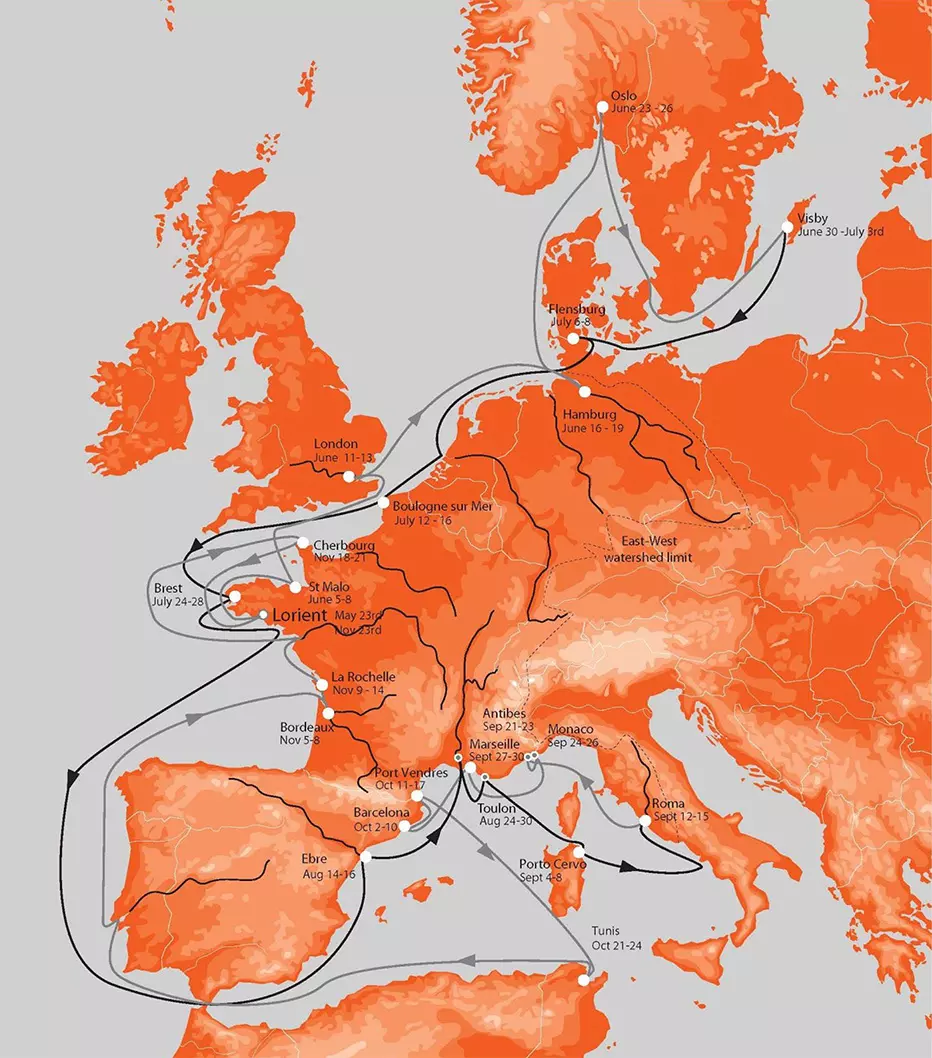The schooner Tara will leave Monday 27 Lorient (France), her home port in Morbihan, for a new mission: "the origins of plastic pollution", with the support of the Veolia Foundation. From June to November 2019, she will travel to 4 of Europe’s maritime facades and explore 10 major rivers to better understand and control plastic pollution - 80% of which originates on land. The schooner will go to the North Sea, the Baltic Sea, the Atlantic coast and finally the Mediterranean Sea.
Identify microplastics and understand their toxicity
The microplastic mission for 2019 will make 18 stopovers in Europe to identify plastic dispersion hubs and their impact. Rain running down roads and into lakes, streams and rivers are vectors of the plastic waste that eventually winds up in the ocean. The schooner Tara goes in search of the origins on land of the plastics found at sea, with an interdisciplinary team of some forty scientists on board.
The samples taken will locally measure concentrations at the mouth of 10 rivers in Europe: the Thames (England), the Elbe and the Rhine (Germany), the Seine, the Loire, the Garonne and the Rhone (France), the Tagus (Portugal), the Ebro (Spain) and the Tiber (Italy).
Because plastics disrupt ecosystems by getting into the food chain and finishing up on our plates, this mission will help prioritize the most toxic plastics on the basis of their composition in order to - eventually - eliminate them from our food.
Stop the flow of plastic waste from the continents
Better identification of the sources of microplastics will help combat this pollution more effectively, alongside improving recycling, reducing, and reusing materials in a circular economy.
The Tara Foundation will offer visits to the scientific schooner at stops, and a traveling exhibition intended to raise public awareness about the relationship between marine biodiversity and microplastics and publicize solutions for dealing with pollution both on the coast and upstream.
The European Molecular Biology Laboratory (EMBL) performs the analyses in partnership with the CNRS and coordinates the Tara Océan consortium of over 100 scientists from 18 institutions around the world.



